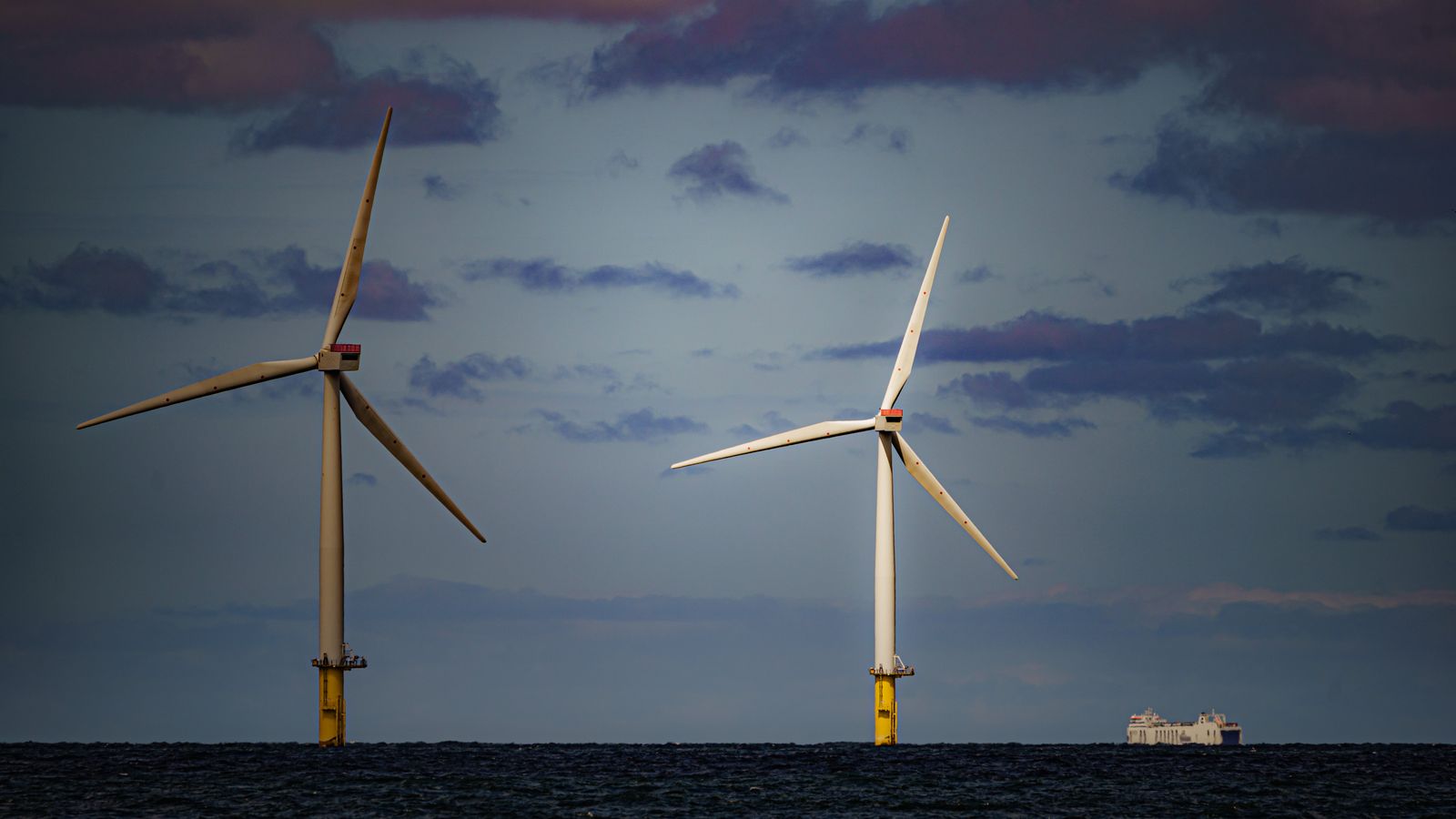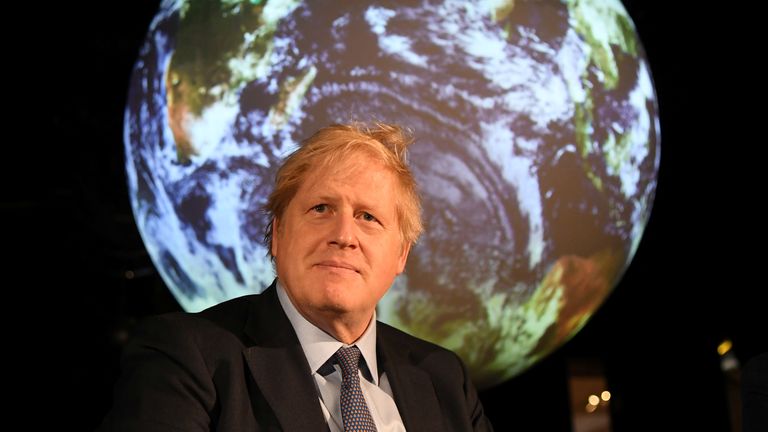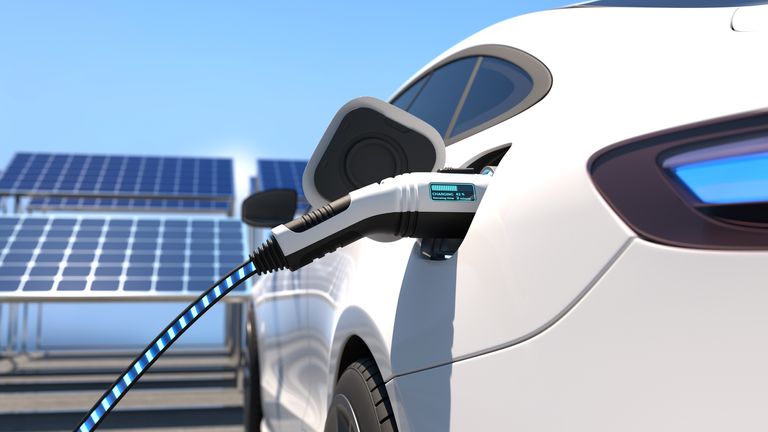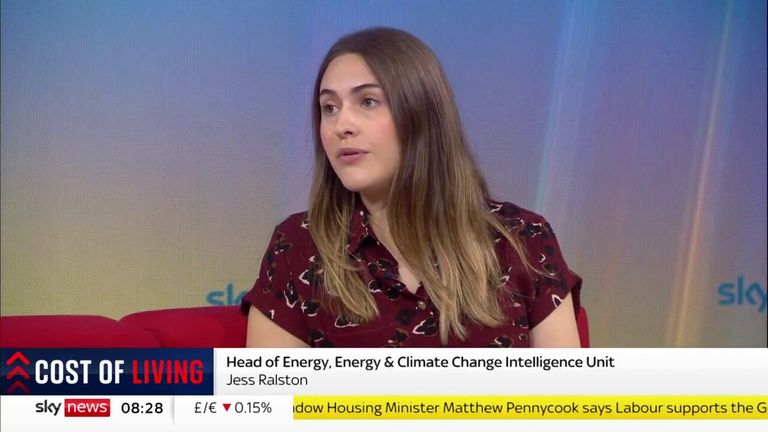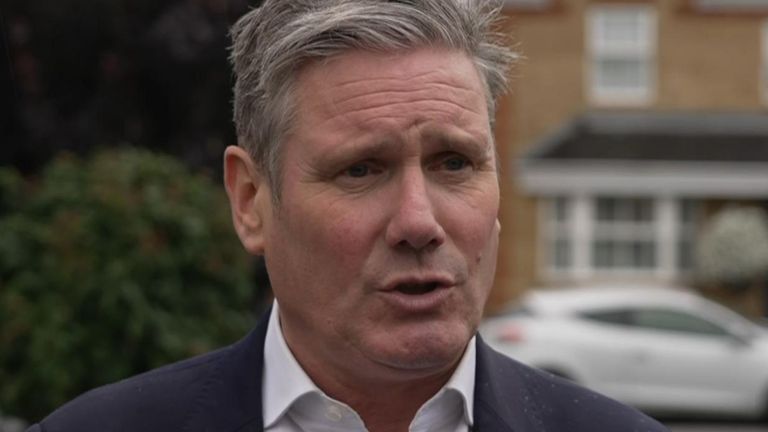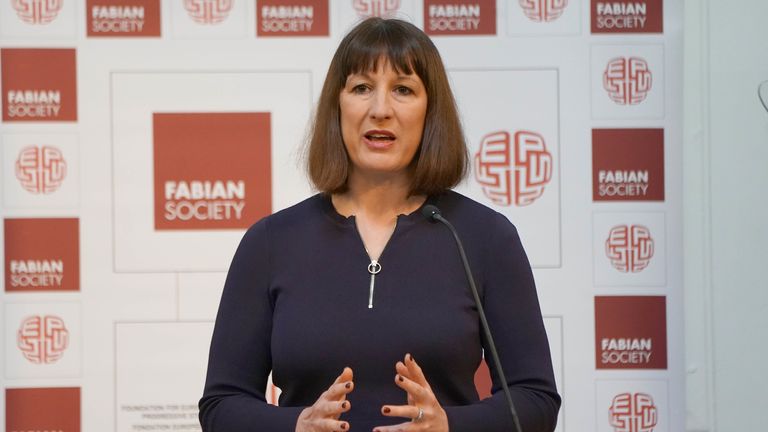As a record breaking heatwave ravages southern Europe, back in a drizzly United Kingdom another debate has fired up – the future of the government’s green agenda.
Sparked by its narrow win in the Uxbridge and South Ruislip by-election last week – a battle fought and won by the Conservatives’ opposition to London’s Ultra Low Emission Zone (ULEZ) scheme – some in the party are calling for a rethink of their current climate commitments, with Sir Jacob Rees-Mogg claiming they are “unpopular” and “expensive”.
Politics live: Ministers take aim at ‘slow’ planning system
Downing Street has confirmed ministers are scrutinising existing pledges “in light of some of the cost of living challenges”.
And Prime Minister Rishi Sunak has hinted at a watering down of proposals, saying measures must be “proportionate and pragmatic”, instead of adding cost and “hassle” to households.
But others from both the Tory benches and the opposition warn any rollback would not only add to the damage caused to the planet, but see the UK fail to cash in on the jobs, industry and investment offered by green technologies.
So what are the current pledges from the government that could be facing either delays or the axe?
Reaching net zero by 2050
The overarching promise from the Conservative government was to ensure the UK reduced its greenhouse gas emissions by 100% from 1990 levels by 2050.
The measure was made law by Theresa May in the dying days of her premiership back in 2019 and it was backed by Boris Johnson throughout his time in Number 10.
But when Liz Truss entered Downing Street, she ordered a review into the target – though her stint ended before it came to pass – showing not everyone in the party was onboard.
Mr Sunak has insisted he is committed to the pledge.
But questions have been raised over whether the government is doing enough to even meet the target, with the Climate Change Committee warning progress had been “worryingly slow”, and time is “very short” to correct the path.
Phasing out petrol and diesel cars by 2030
In 2020, then prime minister Mr Johnson made a commitment to ban the sale of new petrol and diesel cars in the UK after 2030 – bringing the target forward by 10 years.
The £12bn plan promised to accelerate the rollout of charge points for electric vehicles, as well as the development and mass production of electric vehicle batteries, in an attempt to lower emissions and clean up the air.
Number 10 has said Mr Sunak is committed to the 2030 date, but hinted the ban is to be kept under review to ensure it hits that “proportionate and pragmatic” goal as technology evolves.
However, Levelling Up Secretary Michael Gove later doubled down on keeping it in place, saying the target is “immoveable”.
Energy efficient landlords
Another pledge made by Mr Johnson in 2020 was to ensure all private rented homes had an energy efficiency rating of C or better – where A is the best and G is the worst – by 2028.
While the plan could be costly for landlords, it would lead to a reduction in bills for many renters and stop leaky homes adding to emissions.
But this is one proposal that looks to set to have a pin put in it.
Mr Gove, the former environment secretary who is now the minister in charge of housing, said he wanted to see the government “relax the pace” of the 2028 deadline, adding: “We’re asking too much too quickly”.
Read more:
Podcast: The challenges of getting to a net zero world
Watch: Breaking down the UK’s net zero plan
Rich polluting countries like UK must ‘fast forward’ net zero target by a decade, demands UN chief
No gas boilers in new builds by 2025
Another target that may be pushed back is ensuring all new homes are built with an alternative to a gas boiler – such as a heat pump – after 2025.
The measure will not impact people who already have gas boilers in their homes, or stop them from replacing like for like, as it will only be a rule for developers building properties.
However, making the move will cut emissions from new buildings and again help towards hitting that net zero target.
There is a wider ambition for all new heating system installations to be low carbon by 2035, with a pot of £450m to help with household grants.
But again, the government has insisted people will not be forced to remove their existing fossil fuel boilers.
Now, Downing Street has hinted these dates could change as part of a review of their policies as the cost would hit people’s pockets.
Hydrogen levy
Another move that already appears to have been shelved is the introduction of an annual levy to cover the cost of producing low-carbon hydrogen, instead of using fossil fuels, for energy at home.
The fee – which was expected to cost households around £118 a year – was due to be added to bills in 2025, and would help cut emissions by cleaning up the energy market.
But Energy Security Secretary Grant Shapps has made numerous protestations about the cost being borne by people rather than companies, and has pledged numerous times to find another way of funding the change.
What about the other parties?
As mentioned earlier, most of this debate has been brought about by the result of the Uxbridge by-election which, before Thursday’s vote, seemed like a safe bet for Labour to seize.
However, the Conservatives managed to turn the campaign into a referendum on the expansion of ULEZ to the outer boroughs of London – a policy from the capital’s Labour mayor to clean up air quality, but with a cost to drivers of £12.50 a day.
Having initially stood by the plan – and Sadiq Khan – Labour is now making a lot of noise about reviewing the policy and asking the mayor to “reflect” on its impact on voters.
Yet, the party is still is making much of its green credentials, with one of Sir Keir Starmer’s missions for government to “make Britain a green energy super power”.
Labour said, if it got into power, it would cut bills and increase energy security by making all electricity zero-carbon by 2030, and carry out upgrades to 19 million homes to make sure they are insulated.
Click to subscribe to ClimateCast with Tom Heap wherever you get your podcasts
It would also create a new publicly owned company called GB Energy, tasked with championing clean energy, increasing jobs and building better supply chains.
But Labour has backtracked on its £28bn a year investment pledge to accelerate the shift towards net zero, with shadow chancellor Rachel Reeves blaming rising interest rates and the “damage” the Conservatives had done to the economy since the announcement was made.
The Liberal Democrats have a raft of green policy proposals, including upgrading insulation in all existing homes by 2030 and ensuring all new builds are “eco friendly”.
Other measures include investing to get 80% of the UK’s electricity from green energy by 2030, and creating a £20bn Clean Air Fund to create walking and cycling routes to schools, and invest in pollution-free public transport.
